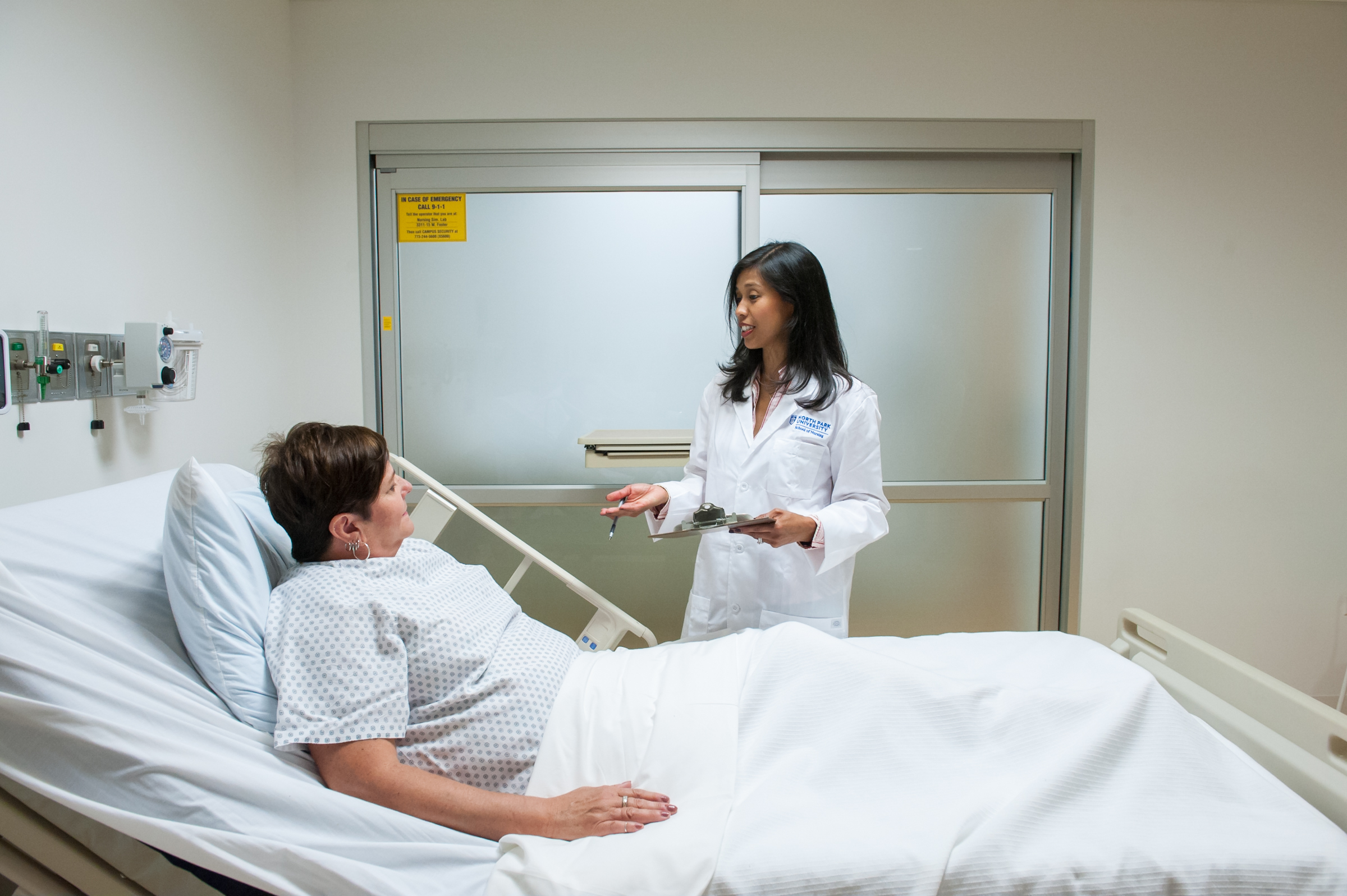Program Requirements
The AGPCNP post-master’s certificate requires 36 total semester hours (sh) plus 765 practicum hours.
- 15 sh of advanced practice core courses
- 21 sh of AGPCNP specialty courses
Click on a course name below to read a description of that class.
This course is designed to facilitate student transition into the role of advanced practice nurse. It builds on concepts of role socialization and organizational structure. Professional issues such as credentialing and reimbursement for advanced practice nurses are explored. Health care policy and its impact on advanced practice nursing and primary care are examined.
This course expands on foundational concepts of pathophysiology, focusing on altered cell, organ, and system function. Recognition, evaluation, and management of common health deviations of individuals across the lifespan are also addressed.
This course expands on foundational concepts of pharmacology and provides a framework for understanding pharmacotherapeutics. The overall purpose of the course is to prepare advanced practice nurses for safe therapeutic drug selection and prescription for individuals across the lifespan.
This course examines the process of health history taking, physical assessment, diagnostic data interpretation, and health assessment recording for individuals across the lifespan. It consists of a 3-hour didactic portion and a 1-hour laboratory component. Students must have completed an undergraduate health assessment course or equivalent prior to registering for this course.
This course addresses theories of adult growth and development, principles of health promotion and disease prevention, and introduces related national practice guidelines. Students acquire skills in conducting risk assessments, developing health promotion and risk reduction strategies, and evaluating health promotion activities.
The course, a continuation of NURS 5531, examines the health care needs of adults across the lifespan as addressed by the advanced practice nurse in primary care settings. It builds on the concepts of health promotion and disease prevention and emphasizes assessment, diagnosis, and treatment of common acute episodic illnesses, chronic stable illnesses, and medical emergencies.
This course addresses the principles of health and aging and strategies for advanced assessment of older adults across cultural groups. Common geriatric issues and syndromes are discussed, with emphasis on wellness, prevention, maintenance, and early health care interventions in primary and long- term care settings.
This course focuses on the diagnosis and treatment of common acute and chronic geriatric illnesses and complex health problems of older adults of diverse cultures, including frail and demented older adults in primary and long-term care settings. The role of the primary care NP with palliative/end-of-life care management is addressed.
This course provides students with the opportunity to develop an evidence-based practice project with potential for dissemination. The project will be presented in both written and oral formats.
Please review the entire for the year you enrolled at ��ݮӰ�� for official course requirements. The catalog and your academic advisor will assist you in planning your course sequence.


